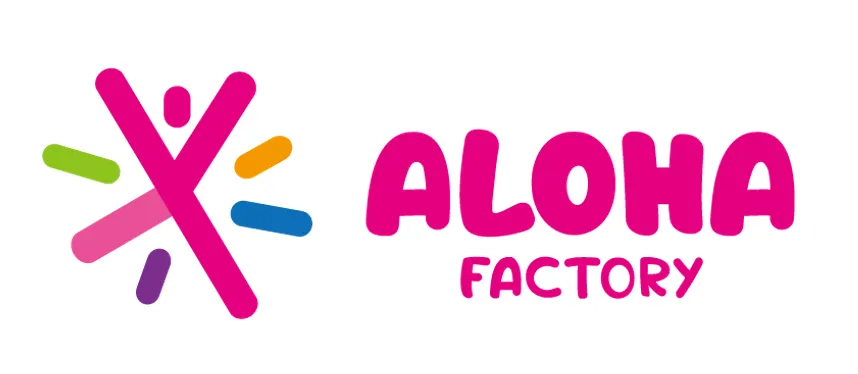After 3 years since the establishment of Aloha Factory, CEO Lee Ho-jin shares the story of Aloha Factory, which has gone through numerous journeys with many colleagues to release over 20 game types and more than 150 prototypes, starting with hyper-casual games.
"The reason for Aloha Factory's existence, which could be considered its mission, is to 'create a world of happiness through contents.' We define happiness as something that can be remembered and cherished even after a long time has passed. We hope that the contents we create, service, and support at Aloha Factory can play that role."
Q. Nice to meet you, Ho-jin! Could you introduce yourself?
Hello, I am Matthew (Lee Ho-jin), the CEO of Aloha Factory. Nice to meet you.
Q. I'm curious about what motivated you to start Aloha Factory.
I started my first career in a startup. Even though I didn't know anything at the time, the experience of doing something myself hit me hard. Since then, I have had a strong desire to do something I can create with like-minded people.
Later, while working at a game company, I saw the potential of the global casual game market and thought I should try it out. When like-minded colleagues gathered one by one, we naturally started Aloha Factory.
"Our vision at Aloha is to 'make games loved by many people for a long time.' Therefore, we started developing hyper-casual games to understand the 'many people' (the public). Fortunately, as we gained experience in global services and produced meaningful results, we started thinking about what makes a game loved for a long time. We are now making various genres of light-core games, and I feel a lot of 'creating together with like-minded people,' just as I originally thought.
Q. What do you focus on most these days?
"I think a lot about how to make good games. From planning, development, art, business, marketing, and more, there are so many elements that make a game successful, so we are refining and thinking more about the aspects we need to focus on in each stage.
I am also interested in the growth of our production team. I am thinking about how to properly incubate small development teams. We have three production teams internally, and the goal is to grow each individual team into independent studios. We are giving authority to each production team lead and discussing game play and trial and error in the production process together.
As we think about the growth of the production team, we have developed our own game data analysis and management tool, 'Flamingo,' that can help game production and operation, and have also formed a separate publishing organization to provide business feedback at each production stage.
If we only focus on production, we may miss the market value and potential of the game. Of course, we can discuss the revenue model from the beginning. We plan to focus more on this aspect and grow not only our internal production teams, but also external indie development teams.
Q. I heard that you have one-on-one meetings with your colleagues once a quarter. Is there a reason why you meet and talk to many colleagues frequently?
It seems to be connected to the reason for starting the company. I think growing and creating together with like-minded colleagues is meaningful and fun. So I hope that the members of Aloha Factory have the same mindset. I want the time spent in the company to be meaningful in life, and ultimately, I want us to feel a sense of achievement that we have grown together and accomplished something.
Of course, I don't think everyone's temperature can be the same. However, I think it's important to share various thoughts under the vision of Aloha Factory. So we try to constantly adjust our thoughts on the company's image, vision, individual growth, and roles.
Q. What do you think is Aloha Factory's competitiveness/attraction?
I believe that the biggest attraction of Aloha Factory is empathy. I think that there is a sense of empathy among colleagues and stakeholders when it comes to the direction of the company. This is due to the efforts to carry out the decision-making process, production process, and overall operation of the company in a systematic and rational manner.
In the course of doing business, there are many moments of decision-making that arise, and I always think about whether the reasons for those decisions are rational. Especially in game development, there is often a conflict between the craftsmanship-based completeness of the game and its business potential. I think that Aloha Factory has highly advanced systems and processes in place that allow everyone to make rational decisions in this area. Even if a project is dropped internally, decisions are made based on criteria that everyone is aware of in advance, so we can calmly acknowledge it and move on to the next thing.
The term "Factory" in Aloha Factory also reflects the meaning of a systematized production process. Game (content) production is generally unpredictable, and I heard a lot before starting the company that intuition is important. So we decided to name ourselves Aloha Factory with the idea of really making it systematic. When it comes to the hyper-casual genre, the production cycle is very fast, so we also received a lot of comments that we wanted to become a factory manager. ^^;; However, now that the production cycle has become longer and the members have adapted to the process, I think that it has become more systematized.
We also strive to create standards and guidelines that are possible in terms of business and marketing, and to make rational decisions within them. Of course, since the service process of the game moves organically, there are many difficult situations.
The same applies to matters other than game development.
For example, Aloha Factory's welfare is divided into three main categories: growth, health, and harmony. Therefore, as the company grows, we prioritize and improve welfare based on whether it meets these three conditions. Even if there are policies to consider, if they do not fit within the framework, they may be pushed back to a lower priority. By creating many criteria and processes together and listening to many opinions, we can make choices that everyone can agree on and move forward.
Q. What was the most enjoyable or proud moment for Aloha Factory?
Actually, we're not the type to make a big deal out of things.
I think this kind of personality is advantageous when it comes to creating content. However, if I had to pick the most enjoyable moments, it would be the time spent with colleagues. I remember the moments when we ordered late-night snacks and talked, made, and worried about games and the company.
Q. As the CEO of Aloha Factory, do you have any goals you want to achieve? Is there anything you want Aloha to become as a company?
Before Aloha Factory's vision, its mission, which can be considered its reason for existence, is "Let's make a happy world with content." Happiness is defined as something that can be remembered and recalled even after a long time has passed.
We hope that the content created, serviced, and supported by Aloha Factory can fulfill that role.
Therefore, we want to become a company like Nintendo.
Another thing is that we want Aloha Factory to become a company full of an entrepreneurial spirit. We hope that we can learn to achieve something by thinking and taking the lead ourselves within the Aloha fence.
So, I strive to treat each colleague as a partner rather than as an employee.
Whether they become the representative of CIC Studio within Aloha Factory, become an entrepreneur outside, or become a specialist in any field, I hope that they can create value as an independent existence based on an entrepreneurial spirit.
Q. Finally, could you please give a message to everyone who dreams of game development?
It makes you realize how difficult it is to capture people's thoughts and emotions.
I believe that content creation is a battle with oneself. Ultimately, I believe that it is most important to hold the center and continue to make steady efforts and try many things.
It's not easy, but it's worth it.
If you ever feel lonely or unsure about the direction during the long process, please feel free to knock on Aloha's door.
Aloha! World!
Happiness is not just a momentary pleasure, but memories and emotions that last a long time.
Alohafactory creates games that are loved by many people for a long time.
As creatives, we each bring our own colors to Aloha.

_(3).png&blockId=f07eff68-91f4-46bc-8c12-f16fae14c509&width=3600)








